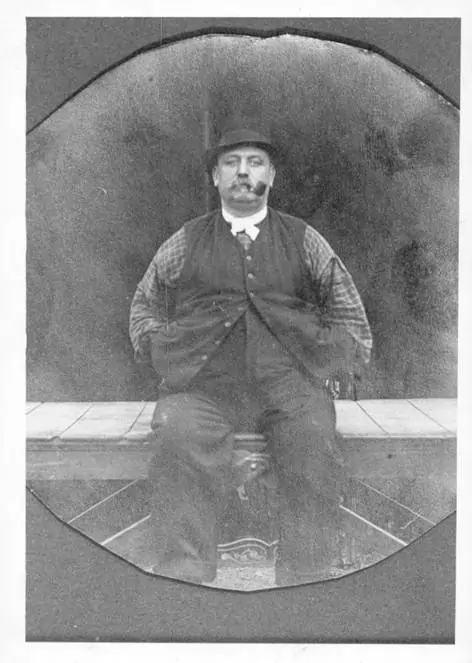
At over six feet tall and 22 stone, Bill Moore must have been an impressive sight! While originally from Wells, he made his way to the north of England with his travelling boxing booth. For a time he set up at Darlington, but at the outbreak of war in 1914, Moore decided to move his show to Catterick Camp. The ‘Tommies’ must have enjoyed what he had to offer. Boxing matches even involved Annie, his daughter and a captive bear which on one occasion escaped onto local moorland. Military Police eventually tracked the animal down, much to the relief of the locals.
Explore more memories from the ribbon
-
Harry Patch
When canvassing the local businesses for information about characters from the time of the First World War for our Ribbon of Remembrance, a major surprise came from Wendy, shop manager at the Castle Hill Bookshop. “You know what my name is?!” was her reply to the enquiry. Wendy Patch is the granddaughter of Harry Patch, the ‘Last Fighting Tommy’. Henry John Patch died on 25th July 2009, aged 111 years, having attained a level of celebrity that he can never have imagined at the time when he was No 2 on a Lewis gun team in the Duke of Cornwall’s Light Infantry. Harry was an apprentice plumber before he was conscripted into the army at the age of 18. He saw action at the Third Battle of Ypres, though his war came to an end on 22nd September 1917 following a German shell burst which killed three of his fellow Lewis gunners. Harry’s wound saw him hospitalised for 12 months. The Armistice came about while he was convalescing on the Isle of Wight. Following the war, Harry married Ada Billington, had two sons Denis and Roy and returned to work as a plumber. Harry only spoke about the war in the latter part of his life and when he did it was without any animosity towards the Germans who faced him across No-man’s Land. As one of the few Great War veterans who survived into the 21st century, Harry was invited to Buckingham Palace and 10 Downing Street. He was…
-
Ernest Pigg
Ernest Pigg was the son of James and Maria Louise Pigg of 7 Langley Avenue, Thornaby on Tees. He enlisted in late 1914 and was posted to the 8th Battalion of the Yorkshire Regiment. The 8th Battalion left for France in late August 1915 and took over trenches in the area of La Rolanderie and Bois-Greniers. Having been in France for only one month 11605 Private Ernest Pigg is reported to have died of wounds on 28th September. He was buried at Sailly-sur-la-Lys Canadian Cemetery in the Pas-de-Calais. He was awarded the 1915 Star, the British War Medal and the Victory Medal. His effects, which were left to his father James, constituted £2-2s and a gratuity of £3-10s.
-
2nd Lieutenant Philip Mayne
Philip Mayne was the last surviving British officer from World War One to die. He died at the age of 107 years and 139 days at a care hostel in Richmond, North Yorkshire in 2007. Philip’s war service was was brief and he never saw any action. However he was the last verteran to die who held the rank of officer. This happened thanks to a cadetship into the Royal Engineers which meant he was fast-tracked to second lieutenant — the lowest officer rank — in September 1918 at the age of just 18. The war ended six weeks later and he was demobilised on Christmas Eve 1918 without having set foot in France. Following the war he studied at Cambridge and became an engineer. With a birth date of 22 November 1899, Mr Mayne was alive in the 19th, 20th and 21st centuries. At his death he had three children, eight grandchildren and twenty-one great-grandchildren.
